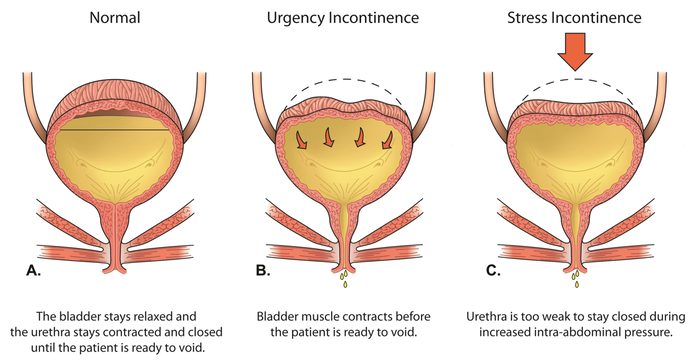A fundamental component of overall well-being that often goes unaddressed is pelvic health. Among the many pelvic health challenges individuals might face, stress urinary incontinence stands out as a common concern affecting people of varying ages and backgrounds.
Understanding Stress Urinary Incontinence
Stress urinary incontinence (SUI) is characterized by the involuntary leakage of urine during physical activities that exert pressure on the bladder, such as laughing, sneezing, coughing, or exercising. This condition occurs when the muscles and connective tissues supporting the bladder and urethra weaken, leading to decreased control over urine flow. SUI can be frustrating and embarrassing, impacting an individual’s quality of life and self-confidence.
Causes and Risk Factors
Several factors contribute to the development of stress urinary incontinence. Childbirth, particularly vaginal deliveries, can lead to weakened pelvic floor muscles and damage to the supportive structures. Hormonal changes, menopause, increased BMI, chronic coughing, and aging can also play a role. Additionally, genetics, lifestyle choices, and previous pelvic surgeries may contribute to the risk of SUI.
Prevention Strategies
There are steps individuals can take to prevent or alleviate “stress urinary incontinence”:
- Pelvic Floor Exercises: Engaging in targeted pelvic floor exercises, guided by a pelvic health physiotherapist, can strengthen the muscles that support the bladder and urethra. These exercises also work to counteract the muscle atrophy often linked to the natural aging process.
- Weight Management: Maintaining a healthy weight reduces the pressure on the pelvic floor muscles, thus reducing the risk of SUI.
Pelvic Health Physiotherapy for Stress Urinary Incontinence
Pelvic health physiotherapy, specializing in pelvic floor health, plays a pivotal role in addressing stress urinary incontinence. A skilled pelvic health physiotherapist assesses the specific factors contributing to SUI and develops a personalized treatment plan.
Benefits of Pelvic Health Physiotherapy
- Comprehensive Assessment: A thorough evaluation identifies the root causes of SUI, enabling the physiotherapist to tailor your treatment plan accordingly.
- Targeted Exercises: Range pelvic health physiotherapists guide individuals through exercises designed to strengthen and retrain the pelvic floor muscles, improving bladder control.
- Education: Patients receive valuable insights into their pelvic health, understanding how lifestyle factors contribute to SUI and how to manage it effectively.
- Biofeedback Techniques: Using specialized tools and techniques, physiotherapists offer biofeedback to help patients better understand and control their pelvic floor muscles.
- Manual Therapy: Hands-on approaches may be used to release muscle tension and improve nerve function in the pelvic region.
- Long-term Management: Through ongoing support and guidance, patients learn to manage and potentially eliminate SUI, improving their overall quality of life.
Stress urinary incontinence is a common condition that need not be endured silently. Understanding the causes, risk factors, and prevention strategies can empower individuals to take charge of their pelvic health. Range pelvic health physiotherapy offers a holistic approach to managing and overcoming SUIe. By combining personalized assessments, targeted exercises, education, and ongoing support, individuals can regain control over their bladder and enhance their overall well-being. If you or someone you know is struggling with stress urinary incontinence, seeking the expertise of a Range pelvic health physiotherapist can be a transformative step towards a life free from the constraints of SUI.


